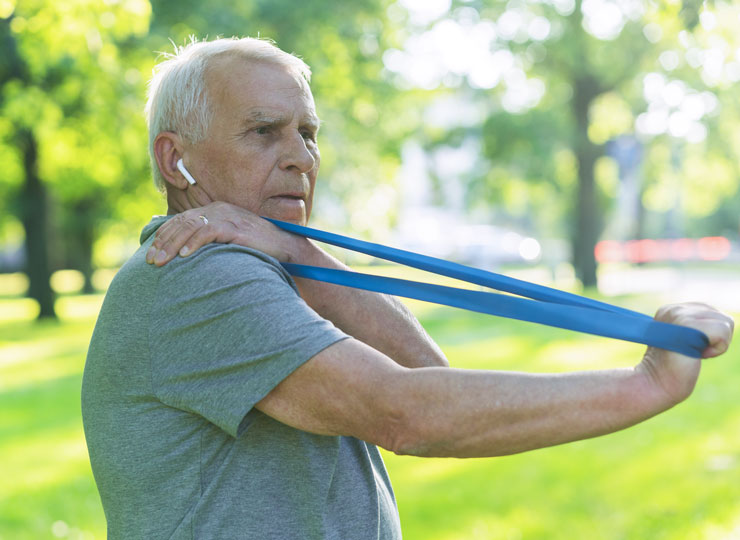
December 27, 2023
Research shows that regular exercise is important for helping to keep the brain in good working order. In numerous studies, regular physical activity — whether it’s walking, running, dancing, gardening or doing household chores — has been linked to a lower risk of Alzheimer’s disease and other forms of dementia.
But how much exercise do you need to lower your risk of death due to Alzheimer’s? According to a new analysis, it may be as little as 20 minutes a week — provided the exercise is vigorous.
For the study, researchers from the University of Zaragoza in Spain and other institutions turned to data from the US National Health Interview Survey, a large and ongoing study that has tracked the health of tens of thousands of Americans over many years. Looking at annual data from 1997 to 2018, they explored how physical activity levels affected the risk of dying from Alzheimer’s disease in more than 90,000 participants aged 68 and over; their average age was 75. Alzheimer’s is the seventh leading cause of death in the United States and was responsible for 119,399 fatalities in 2021, the most recent year for which data is available.
In the study, the researchers looked at how much exercise participants typically got, and how intense that exercise was. They defined moderate physical activity as anything that induced light sweating or a moderate increase in breathing or heart rate for at least 10 minutes. They defined vigorous activity as anything that caused heavy sweating or large increases in breathing or heart rate for at least 10 minutes. Among the study participants, over half didn’t get at least a 10-minute bout of moderate exercise in a typical week, while 80 percent didn’t get that amount of vigorous exercise.
The researchers then compared typical exercise habits with Alzheimer’s death rates. They found that vigorous physical activity was far more important than moderate activity for lowering the risk of dying from Alzheimer’s disease. Benefits started to appear with as little as 20 minutes of vigorous exercise a week, and the more amount of vigorous activity someone got, the lower their risk. The optimal sweet spot for lowering the risk was 140 minutes of vigorous activity a week, which led to a 31 percent reduction in Alzheimer’s deaths.
The research team estimated that just 40 minutes of vigorous physical activity every week would prevent 12,238 deaths from Alzheimer’s every year in the United States. Increasing that to 140 minutes a week of vigorous exercise, or an average of 20 minutes a day, would prevent 37,710 deaths a year, they calculated.
“These findings have practical implications, because a feasible goal of 10 minutes of vigorous physical activity for four days per week or any other combination that adds up to 40 weekly minutes of vigorous physical activity could reduce the risk of Alzheimer’s disease-related mortality,” the authors wrote. “Additionally, lower but still significant risk reductions might be possible by doing 20 weekly minutes of vigorous physical activity solely.”
Moderate physical activity also appeared to lower the risk of dying from Alzheimer’s, though the results in this analysis were not statistically significant.
“Our study also emphasizes the importance of vigorous physical activity over moderate physical activity when recommending physical activity to reduce the risk of Alzheimer’s disease-related mortality,” the authors concluded, adding that their analysis “provides specific vigorous physical activity targets that might be useful for clinical and public health advice.”
By ALZinfo.org, The Alzheimer’s Information Site. Reviewed by Eric Schmidt, Ph.D., Fisher Center for Alzheimer’s Research Foundation at The Rockefeller University.
Source: Ruben Lopez-Bueno, PhD; Lin Yang, PhD; Emmaunuel Stamatakis, PhD; et al: “Moderate and Vigorous Leisure Time Physical Activity in Older Adults and Alzheimer’s-disease related Mortality in the USA: A Dose-Response, Population-Based Study.” The Lancet Health Longevity, December 2023











